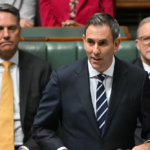I feel like a Tooheys, or twelve!
There should be no surprises in the "Drinkwise" findings that for many Australian young men, the idea of drinking to get drunk is synonymous with masculinity.
As a nurse, "Stuart" (not his real name) cops the brunt of drunken idiots every Friday and Saturday night he has the misfortune of working. Those he sees are mostly young men – and they’re often unhappy to be there.
"Stuart" tells of one particularly memorable night he found himself tending to a drunken university student who was accompanied by two deeply concerned friends:
“He wet himself, and they (his mates) saw it. So when he was sober enough to stand I sent him to the shower to clean himself up (to which he was laughing) and I had a go along the lines of "do you think you’ve learned any lessons from this?" His comeback, “Well, I didn’t do any of it to impress you.”
"Stuart" and his colleagues experience the fallout of drunken behaviour on a regular basis. And there is little reason to doubt such problems are isolated when you look at some facts.
A recent Drinkwise study found many young men who get too rowdy wouldn’t have done so if they weren’t drinking. According to NSW Police, over 1 in 5 hospitalisations of those aged 15-24 in New South Wales are related to dangerous drinking. Over 30% of these hospitalisations are of young men involved in alcohol-related assaults.
"Stuart" can relate to these statistics. Describing typical cut to the head victim dialogue as:
"F***en look at it! I got punched for no reason by a group of people I’ve never met before! Stitch me up quick so I can go out and retaliate!”
Aussie lads also love to booze it up when they hit the tourist trail. According to Dynamiq Founder Anthony Moorhouse, drinking is a big trouble-maker abroad:
"Alcohol is pretty much the number one catalyst for problems overseas…Australians want to have a good time, have a few too many beers, but then their judgment is impaired and it’s much easier to get caught up in a bad situation."
Remember Jerry Goding’s World Cup trip? Passed out drunk in the driveway of a Johannesburg politician, he found it funny that he received such attention, despite being lectured on potential risks by those who discovered his unconscious self. After being robbed (whilst intoxicated) days later, Jerry laughed off his predicament:
“It’s funny that I made front page (of South Africa’s The Times), then get a follow-up article…then last night I got mugged at knifepoint by three lads…The world does move in funny circles.”
What is it that causes so many of our young men to reach this point with constant benders, where they don’t seem to care about what happens around them and think it’s hilarious? One contributing factor might be biological.
Robert Battisti, clinical psychologist and researcher for the Brain and Mind Research Institute (BMRI), works with youths experiencing substance abuse and is also a young Australian male:
“The brain isn’t fully developed until a person reaches their mid-twenties, especially the parts which inhibit behaviour…the ability to stop ourselves is harder for someone younger.”
Though the brain has a role to play in understanding why young men won’t always stop themselves acting foolishly, it isn’t the only factor. If we’re honest then we must acknowledge a painful truth. We do like grog. A lot.
Many of us see nothing wrong with getting thoroughly drunk. Aussie men aren’t always seen as men unless they hold their liquor. Downing a slab to show manliness is a major stumbling block for this social problem.
Social researcher and author Hugh Mackay believes that stories such as those of Jerry Goding show that, “the grog culture is so deeply engrained in Australians. A young person like that, raised in a drinking culture, would regard the abuse of alcohol as consistent with the idea of having fun.”
Yes, drinking can be fun. To relax, to socialise; only the most wowserish would consider these things to be negative. But we should take care when we abuse booze and don’t care about consequences. After all, alcohol is the most common drug; and it’s completely legal.
Australia has always loved alcohol. It’s difficult to say whether we’ve had greater or fewer problems over time, but alcohol issues have manifested themselves differently. The long-gone six o’clock swill of the 50’s and 60’s provided some dilemmas. It may have seemed like a good idea to close up earlier, but it led to people drinking as much as they could before 6pm. Then a 10pm closing time was implemented, and while it partially lessened the “drinking to a deadline” mentality, it didn’t drastically change our drinking culture.
Now, opening hours of some premises have blown out further, to the point where violence all too easily spills back onto streets. This is when the likes of nurse "Stuart" take the full force of the public’s alcohol attitudes.
Though there is bleakness about our drinking culture, all is not lost for young men who regularly write themselves off but wish to stop. Help can come from a source that can also be part of the problem – peers.
As part of his work for the BMRI, Robert Battisti is surprised by emerging attitudes. Though many young men are encouraged by mates to drink, those friends can also be incredibly accepting and supportive. “There’s an overt and individual perception that if someone admits to having trouble with alcohol that they will have stigma attached to them for seeking help, but in my experience that doesn’t always happen." Battisti sees evidence of mates looking out for each other and encourage those with problems to seek help; “Otherwise it takes something extreme, like getting into fights or winding up in gaol before they admit a problem.”
It’s stating the obvious to say that Australians should drink responsibly. Having some alcoholic beverages with friends deserves to be seen as a safe and pleasurable experience. But young Aussie blokes who drink for the sake of getting drunk risk hurting themselves and others; and is that a sign of having fun or being a real man?
Cody Giunta is fascinated by many aspects of media and politics. Having previously studied English and education at the University of New South Wales, he is now a freelance writer and Media Practice student at the University of Sydney.















